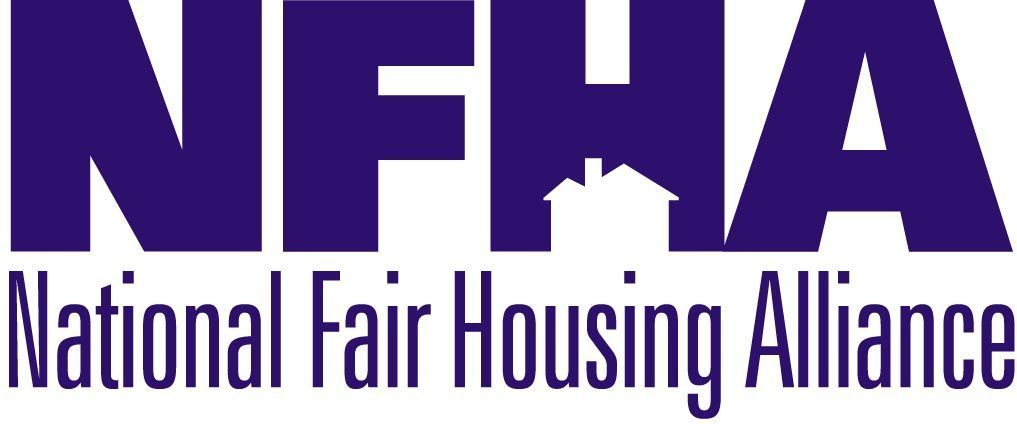Justice Department accuses six major landlords of scheming to keep rents high
- At January 07, 2025
- By fhfla
- In News
 0
0
DENVER (AP) — The U.S. Justice Department is suing several large landlords for allegedly coordinating to keep Americans’ rents high by using both an algorithm to help set rents and privately sharing sensitive information with their competitors to boost profits.
The lawsuit arrives as U.S. renters continue to struggle under a merciless housing market, with incomes failing to keep up with rent increases. The latest figures show that half of American renters spent more than 30% of their income on rent and utilities in 2022, an all-time high.
That means exhausting, day-to-day decisions between medications, groceries, school supplies and rent. It means eviction notices and protracted court cases in which children face the highest eviction rates, with 1.5 million evicted each year, according to Princeton University’s Eviction Lab.
While the housing crisis has been assigned several causes, including a slump in homes built over the last decade, the Justice Department’s lawsuit claims major landlords are playing a part. Click here to read full story.
Justice Department Secures Third Settlement with a Non-Depository Mortgage Company to Resolve Redlining Claims in Palm Beach, Broward and Dade Counties
- At January 07, 2025
- By fhfla
- In News
 0
0
The Justice Department announced today that The Mortgage Firm, Inc. (The Mortgage Firm) agreed to pay $1.75 million to resolve allegations that it engaged in a pattern or practice of lending discrimination by redlining predominantly Black and Hispanic neighborhoods in the Miami-Fort Lauderdale-West Palm Beach, Florida, Metropolitan Statistical Area (Miami MSA).
Redlining is an illegal practice by which lenders avoid providing credit services to individuals living in communities of color because of the race, color or national origin of residents in those communities.
“Non-depository institutions, including mortgage companies, are now originating a higher share of loans to homebuyers than banks and credit unions,” said Assistant Attorney General Kristen Clarke of the Justice Department’s Civil Rights Division. “With this trend comes the obligation to ensure full compliance with our federal laws that prohibit redlining. By denying predominantly Black and Hispanic neighborhoods in the greater Miami area access to credit, The Mortgage Firm violated the law, denied communities equal access to credit and exacerbated the racial wealth gap. This settlement will provide impacted communities in Miami with expanded access to homeownership, and makes clear that no matter the type of financial institution — bank, credit union or mortgage company — the department is committed to rooting out redlining across the country.”
“Our efforts to protect everyone’s civil rights is never ending,” said U.S. Attorney Markenzy Lapointe for the Southern District of Florida. “The unlawful practice of lending discrimination is not merely a thing of the past, but persists in this country, to include within the Southern District of Florida. Our office is fully committed in ensuring that every person living in the Southern District of Florida, to include residents in predominantly Black and Hispanic neighborhoods, can achieve the American dream of building wealth through home ownership. We will continue to work with the Civil Rights Division to hold those lenders accountable who engage in unlawful discriminatory practices in our diverse district.”
The Mortgage Firm is a non-depository mortgage company headquartered in Altamonte Springs, Florida. The complaint, filed today in the Southern District of Florida, alleges that The Mortgage Firm violated the Fair Housing Act and Equal Credit Opportunity Act by failing to provide equal access to mortgage lending services to majority- and high-Black and Hispanic neighborhoods in the Miami MSA and discouraging people seeking credit in those communities from obtaining home loans. The Mortgage Firm located its offices in predominantly white neighborhoods and took inadequate steps to market to and develop referral networks within Black and Hispanic neighborhoods. As a result, The Mortgage Firm generated mortgage loan applications in predominantly Black and Hispanic neighborhoods in the Miami MSA at rates far below peer institutions.
The proposed consent order, which awaits court approval, would require The Mortgage Firm to:
- Conduct a Community Credit Needs Assessment to identify the credit needs of residents of predominantly Black and Hispanic neighborhoods in the Miami MSA and to consider the results of that assessment to develop future loan programs, marketing campaigns and outreach efforts.
- Provide $1.75 million for a loan subsidy program to offer affordable home purchase, refinance and home improvement loans in predominantly Black and Hispanic neighborhoods in the Miami MSA. The program may provide lower interest rates, down payment assistance, closing cost assistance or payment of initial mortgage insurance premiums.
- Conduct a detailed assessment of its fair lending program in the Miami MSA, specifically as it relates to fair lending obligations and lending in predominantly Black and Hispanic neighborhoods.
- Enhance its fair lending training and staffing to ensure equal access to credit is provided across The Mortgage Firm’s market area, including by maintaining a Director of Community Lending.
- Expand its outreach and advertising efforts by maintaining an office location in a majority-Black and Hispanic neighborhood in Miami-Dade County, translating its website into Spanish and requiring all of its loan officers in the Miami MSA to engage in marketing to majority-Black and Hispanic neighborhoods.
- Bolster connections with the community and build referral sources in predominately Black and Hispanic neighborhoods by providing four outreach events per year, six financial education seminars per year and partnering with one or more community partner to increase access to credit in predominately Black and Hispanic neighborhoods in the Miami MSA.
The Justice Department opened this investigation into The Mortgage Firm’s lending practices after receiving a referral from the Consumer Financial Protection Bureau. This settlement marks the Justice Department’s 16th redlining settlement under the Combating Redlining Initiative, and the third non-depository institution to reach a redlining settlement with the department. Non-depository lenders, which are not traditional banks and do not provide typical banking services, engage in mortgage lending and now make the majority of mortgages in this country. Under the Combating Redlining Initiative, the department has secured over $153 million in relief for communities of color that have been the victims of lending discrimination. This historic amount of relief is expected to generate over $1 billion in investment to address unequal access to credit in communities of color across the country.
Second Circuit Affirms Landmark Decision, Approving One of the Largest Punitive Damages Awards Ever Achieved under the Fair Housing Act
- At August 29, 2024
- By fhfla
- In News
 0
0

|
|
Housing Bias Complaints Continue to Trend Upward
- At July 18, 2024
- By fhfla
- In News
 0
0
Washington, D.C. — The number of fair housing complaints filed nationwide peaked to record numbers for the third year in a row, continuing an upward trend highlighting the need for adequate funding for local nonprofit fair housing agencies working to address growing housing injustices nationwide, the National Fair Housing Alliance® (NFHA™) said on Wednesday.
There were 34,150 fair housing complaints received in 2023, compared to 33,007 complaints received in 2022, according to findings in the 2024 Fair Housing Trends Report. There was a noticeably steep increase in the number of harassment complaints, particularly harassment based on color or race, which skyrocketed by 470.59 percent and 114.97 percent respectively.
“The continued increase in reports of housing discrimination means lawmakers are simply not doing enough to provide adequate resources for the organizations serving on the frontlines educating the public about fair housing laws and helping individuals and families when crucial civil rights laws are broken,” said Lisa Rice, NFHA’s President and CEO. “Fifty-six years after the enactment of the Fair Housing Act, we still have not dismantled the longstanding systems that continue to perpetuate discrimination against women, people of color, people with disabilities, and other historically marginalized groups.”
Despite recent news stories of high profile individuals facing inequities when seeking to buy a home or rent an apartment, reported cases only tell part of the story of housing discrimination. Most of the millions of housing discrimination incidents each year go unreported because they are difficult to identify or document. In other cases, individuals might fear facing retaliation or eviction if they file a complaint. Still, tracking the available data is important as it helps shine a light on where resources are most needed.
“Private nonprofit fair housing organizations (FHOs) processed 75.52 percent of complaints, a 5.68 percent increase from the previous year. These FHOs — which investigate fair housing complaints, collect data, provide fair housing counseling and education to consumers, and help clients file complaints — require significantly more funding to continue their important work. Congress must step up to ensure FHOs receive adequate funding to enforce the nation’s fair housing laws,” said Morgan Williams, NFHA’s General Counsel.
In addition, Fair Housing Assistance Program (FHAP) agencies processed 19.26 percent of complaints, while the U.S. Department of Housing and Urban Development (HUD) processed 5.10 percent of complaints, and the U.S. Department of Justice (DOJ) processed 0.12 percent of complaints. FHAP agencies, which are functions of local and state governments and enforce local and state fair housing laws; HUD, which enforces the Federal Fair Housing Act and conducts investigations throughout the nation and U.S. territories; and DOJ, which investigates and prosecutes fair housing complaints that present a pattern or practice of discrimination, must also be adequately funded by Congress to handle the increase in fair housing complaints in a timely manner.
Once again, discrimination based on disability accounted for the majority (52.61 percent) of complaints filed with FHOs, HUD, and FHAP agencies. There were 1,521 complaints of harassment reported, an increase of 66.23 percent. This number represents the highest number of harassment complaints reported since NFHA began reporting harassment-specific data in 2006.
NFHA has produced the Fair Housing Trends Report annually since the mid-1990s as part of its mission to eliminate housing discrimination and ensure equitable housing opportunities for all people and communities.
Eighty-six NFHA member organizations, either private non-profit fair housing organizations or fair housing programs of legal aid agencies, submitted data for this report. HUD’s 10 regional offices and 77 state and local government agencies in HUD’s FHAP program also provided data. In addition, the report contains information gathered from the DOJ.
- Click here to read the full report and view an interactive map highlighting key findings by state.
Anyone who believes they have experienced housing discrimination may click here to file a complaint.
###
The National Fair Housing Alliance (NFHA) is the country’s only national civil rights organization dedicated solely to eliminating all forms of housing and lending discrimination and ensuring equal opportunities for all people. As the trade association for over 170 fair housing and justice-centered organizations and individuals throughout the U.S. and its territories, NFHA works to dismantle longstanding barriers to equity and build diverse, inclusive, well-resourced communities.


